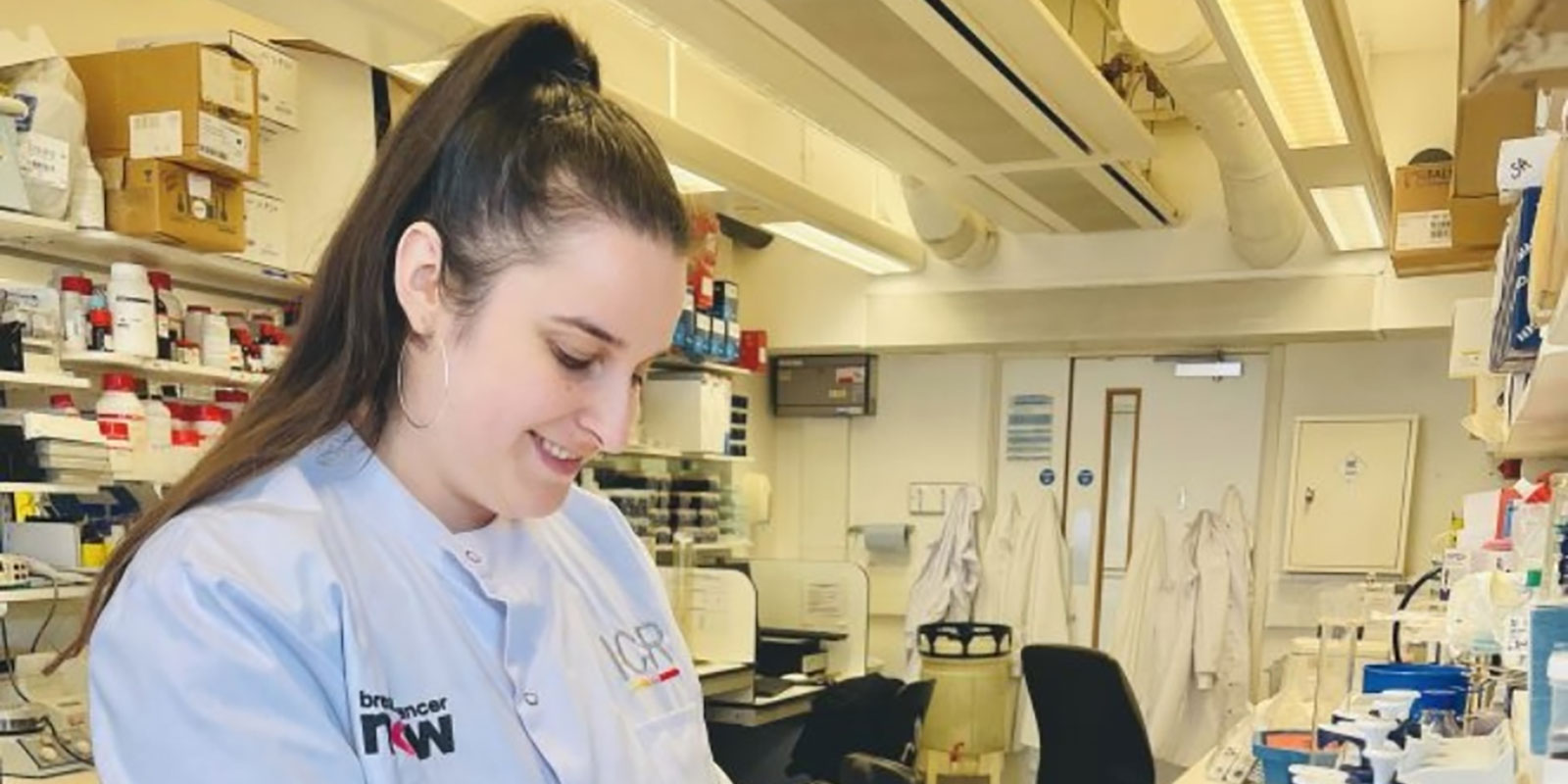
The Institute of Cancer Research, London
Transforming lives through world-leading breast cancer research
Over the last 25 years, the Institute of Cancer Research, London, has advanced the understanding of breast cancer, pioneered new treatments and genetic tests, and led practice-changing clinical trials that have ultimately helped people with breast cancer around the world to live longer, healthier lives – especially those whose disease is driven by faults in the BRCA1 and BRCA2 breast cancer genes.
Discoveries at The Institute of Cancer Research (ICR) have improved the lives of people with breast cancer in the following ways:
• By transforming the way that patients with inherited mutations in the BRCA genes are treated – beginning with our own discovery of the BRCA2 gene all the way through to the creation of new ways of treating BRCA gene mutated cancers.
• By leading the development of tests that enabled individuals with oestrogen receptor positive (ER+) breast cancer to avoid unnecessary chemotherapy and by showing that there are ways of improving the effectiveness of hormonal treatment.
• By making scientific breakthroughs that changed the way radiotherapy is used in the disease.
These advances are benefiting patients in the UK and worldwide as well as global healthcare systems and economies.
The ICR takes a collaborative, team science approach to meeting the challenge of breast cancer by working across the spectrum of breast cancer research – from fundamental laboratory science, genetics and epidemiology to translational research, drug discovery and clinical trials. We are supported in this programme by strong relationships with our hospital partners in the UK and internationally, and by sustained funding from Breast Cancer Now, Cancer Research UK and others.
